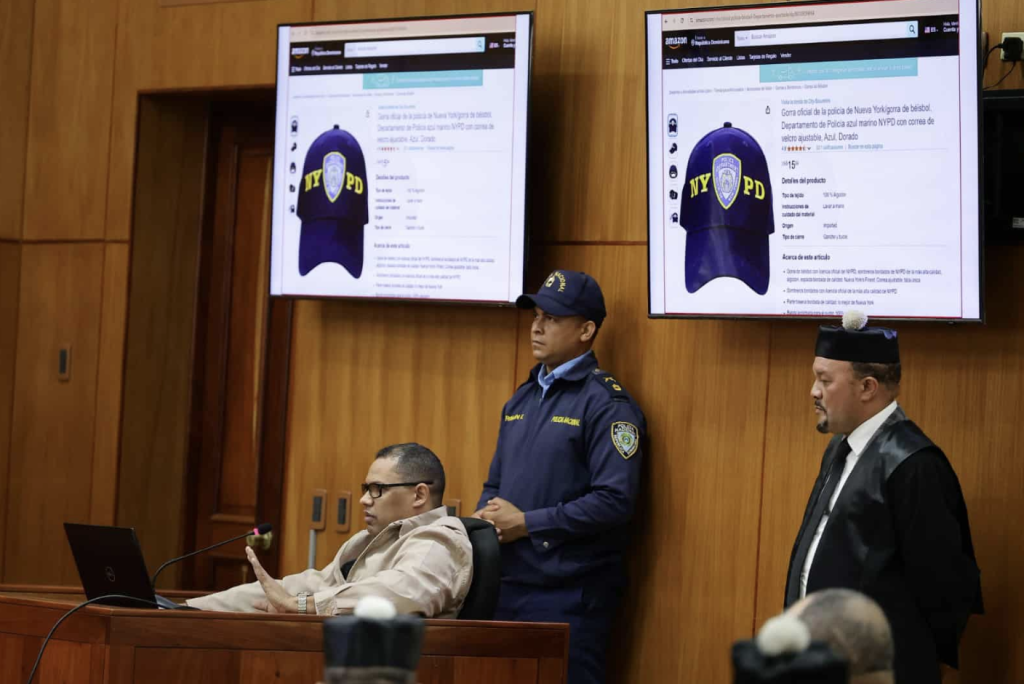
In a pivotal ruling, three judges Gisselle Méndez, Tania Yunes and Jissel Naranjo of the First Collegiate Court of the National District confirmed the 20-year sentence to Argenis Contreras for the voluntary homicide of university professor Yuniol Ramírez, whose death occurred on 12 October 2017. Dissenting judge Tania Yunes argued that Contreras should have been convicted instead as a co-author of the crime.
Yuniol Ramirez was a lawyer and professor at the state university UASD. His corpse was found tied by a chain to a block in a stream in Hato Nuevo, Santo Domingo West.
In the verdict, the judges said that it was determined that Yuniol Ramirez and Argenis Contreras were the only persons in the interior of the vehicle when Ramirez received the bullet that caused his death.
The judges sentenced Argenis Contreras as the material author of the kidnapping and homicide. The intellectual author was not charged.
The case is tied to corruption at the state bus company, OMSA.
After the murder, Contreras fled to the United States where he was captured and three years later sent to the Dominican Republic to stand trial.
The court unanimously acquitted the defendants José Antonio Mercado Blanco (known as “el Grande”), Víctor Elisandro Ravelo Campos, and Liliam Francisca Súarez, citing the prosecution’s evidence as “weak and insufficient.”
This trial marks the second for the defendants, following the annulment of a previous sentence by the Second Penal Chamber of the Appeals Court, which mandated a reevaluation of the evidence presented.
The Public Ministry had originally sought a 30-year sentence for Contreras, 20 years for Mercado Blanco and Ravelo Campos, and five years for Súarez, attributing charges of murder and alleged complicity.
Judge Gisselle Méndez, who presided over the proceedings, explained the decision to uphold Contreras’s sentence, stating that the circumstances surrounding Ramírez’s death did not constitute murder in the legal sense. She noted that the verdict is not subject to appeal.
Méndez emphasized that murder requires premeditation or malice, which, based on the evidence and the reconstruction of events, could not be established in this case. She stated, “The circumstantial evidence presented does not conclusively demonstrate that we are dealing with a premeditated act, or that the defendant intended to kill Yuniol Ramírez.”
The judge highlighted that before the professor’s death on 12 October 2017, there were numerous conversations between Contreras and Ramírez, part of an extortion scheme targeting Manuel Rivas, then the director of the OMSA government transport authority. Contreras was noted to have encouraged Ramírez to demand more money.
Dissenting judge Tania Yunes supported the Public Ministry’s classification of the case as “association of wrongdoers for the purpose of murder.” She asserted that the bribery scheme within OMSA provided essential context for understanding the murder. She suggested that others, not Contreras, had the motive to kill Ramírez, pointing out their association was primarily for financial gain through extortion, as indicated by an analysis of the communications between them.
Read more in Spanish:
Hoy
Diario Libre
Listin Diario
Listin Diario
Listin Diario
29 October 2024

